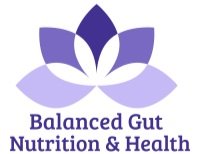Debunking Ultra-Processed Foods (UPFs) with a Nutritionist
I learned that March 1st was “National Peanut Butter Lover’s Day” - I didn’t know that was a thing, but I’m certainly here for it!
Incidentally, my husband made the most delicious treat the other day. We had some cinnamon graham crackers lying around, so he put some chunky peanut butter on top and added some dark chocolate chips - amazing! It was incredibly flavorful and had a great mix of textures - perfect snack!
At the same time, I know some people may consider that an “unhealthy” snack…graham crackers are considered an “ultra-processed food”, and some folks may question:
Was the peanut butter "all-natural"
How much fat/carbs/calories were in that
Was the chocolate 70%+ cacao
These are the kinds of thoughts and questions I encounter daily in my nutritionist role - understandably so.
Let’s unpack that today, as we talk about ultra-processed foods (UPFs).
A Quick Admin Note First
I can’t talk about UPFs without also talking about “clean eating” - as they’re essentially two sides of the same coin.
UPFs are often discussed in a negative light - characterized as “unhealthy” and “not real food”, while “clean eating” is championed as the “ideal” and considered “healthy”.
What do they both have in common?
They’re moralizing food choices, turning us into the food police of what’s “right” or “wrong” to eat - for ourselves, and others. (My October 2024 newsletter talked about the food police and food morality; click here if you’d like a refresher.)
I tried to address both when I started drafting this, but it got a bit long, so, in being mindful of your time, I’m going to cover “Clean Eating” in a separate blog. So stay tuned for “Part 2” of this convo, but for now, let’s dive into UPFs!
What are “Ultra-Processed Foods” (UPFs)?
While there are many varying definitions of UPFs out there, the consensus is that they are foods that have undergone significant industrial processing and often contain additives, preservatives, or artificial ingredients. Critics often refer to them as “frankenfoods”.
Think: packaged snacks, soft drinks, frozen ready-made meals, and processed meats and cheeses, to name a few. The primary complaint against UPFs is their association with various negative health outcomes.
You know what are also considered ultra-processed foods? (according to most definitions)
Coffee beans
Bread (even sprouted, 100% whole-grain)
Non-dairy milks + yogurt
Chocolate
Tofu + hummus
Protein powder(s)
Supplements (any): AG-1, ARMRA, MVMs, etc.
See my point?
Here’s the thing: Eating ultra-processed foods shouldn’t be considered “bad” - it’s the moralization of these foods (and the shame or judgment passed around eating them) that’s the problem - not the foods themselves.
I’m not ignoring the large body of research showing potential associated harms from diets high in sugar, saturated fats, artificial ingredients, etc. (which tend to be higher in UPFs), it’s just that the reality is so much more nuanced than that. Here’s why:
No single food determines overall health: What matters is the overall diet, plus many other lifestyle factors. Having some form of UPFs in your diet does not inherently cause harm.
Most UPFs do have some nutritional value: They’re not complete “nutrition deserts” void of nutritional value; the ones above are nutrient-dense. And yes, some UPFs may not be as nutrient-dense as others, but they still can serve a purpose for many different reasons and still provide a form of nourishment.
Food accessibility and equity matters: UPFs are often more affordable and have longer shelf lives, making them an important part of living in our fast-paced, high-stress society that perhaps doesn’t always have time to make meals from scratch every single day.
More importantly, the long shelf life and affordability provide food security for many people. Demonizing them can contribute to elitism in nutrition conversations and completely miss the larger issues of food inequities amongst marginalized groups.
By demonizing UPFs - and by default, the people that consume them - it creates shame, stress, and guilt over eating habits and choices. This does more harm than good, and I’m not here for that.
What To Consider Instead
Instead of avoiding UPFs out of fear or labeling foods as “good” or “bad,” how can someone approach food choices in a way that supports well-being without guilt or stress? Here are a few ideas:
Focus on what you can add, not what you “should” remove. Instead of worrying about avoiding UPFs, think about what nourishing elements you can incorporate - whether it’s adding protein, fiber, or colorful fruits and veggies to meals you already enjoy.
Consider the big picture. No single meal or snack defines your health. A balanced diet is about patterns over time, not individual choices. A cinnamon graham cracker with peanut butter and chocolate is just that - a snack - not a moral decision. (And quite a yummy one, I might add!)
Make choices based on what works for you. Nutrition isn’t one-size-fits-all. Some days, cooking from scratch might feel great, and other days, convenience foods might be what helps you get through. Both are valid - and neither one is better (or worse) than the other.
Give yourself permission to enjoy food. Eating should be satisfying and nourishing - physically and emotionally. When we let go of rigid rules, we create space for a healthier relationship with food.
Food is meant to sustain us, bring us joy, and fit into our lives in a way that feels supportive - not stressful. Let’s keep that at the heart of our choices.
If you want to see more about the research on UPFs, here’s a balanced article that delves further into this topic. It’s written by a dietitian who holds similar views, and she dives into the existing research both for and against UPFs.

